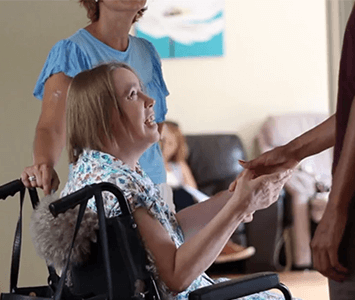A pilot project in Cambridge is bringing personalised support plans to life through the use of short videos.
We are living in a digital age of visual stimuli. Demonstrating the important, high-level areas of support and capturing the personality of a person we support capitalises on this. Helping staff to support people safely and consistently, ultimately reducing anxieties.
By providing access to a short video, staff are more likely to remember what’s important to the person they support; their preferences, routines, how they respond to the right support and crucially how to support them.
This can increase the level of control a person has over his or her life. A video support plan doesn’t replace a written support plan, it supports and enhances one.
Another benefit is that support staff are able to use their time more effectively, visual media enables them to get to know the person faster and better so they can focus more time on the individual and their support.
Lead support worker Pia Buechi-Dean, who is leading the project, said, “We all have different learning styles and video support plans are a fantastic way of providing accessible training for staff to support an individual in the ways they want and need.
It also gives them the opportunity to get a feel for the person they will be supporting; their likes, dislikes, hobbies and interests.”
Buechi-Dean continued, “Video support plans may not always be appropriate. For example, if the person we support doesn’t want to be filmed, or if they are going through a period of high anxiety. But by listening to the person we support and by walking a mile in their shoes, we’re able to help them decide what is or isn’t suitable to show.”
If the person we support has consented, Video Support Plans can also be shared with family and friends, to give clear picture of how their loved one is being supported and the progress they are making towards an improved quality of life with greater control and independence.
